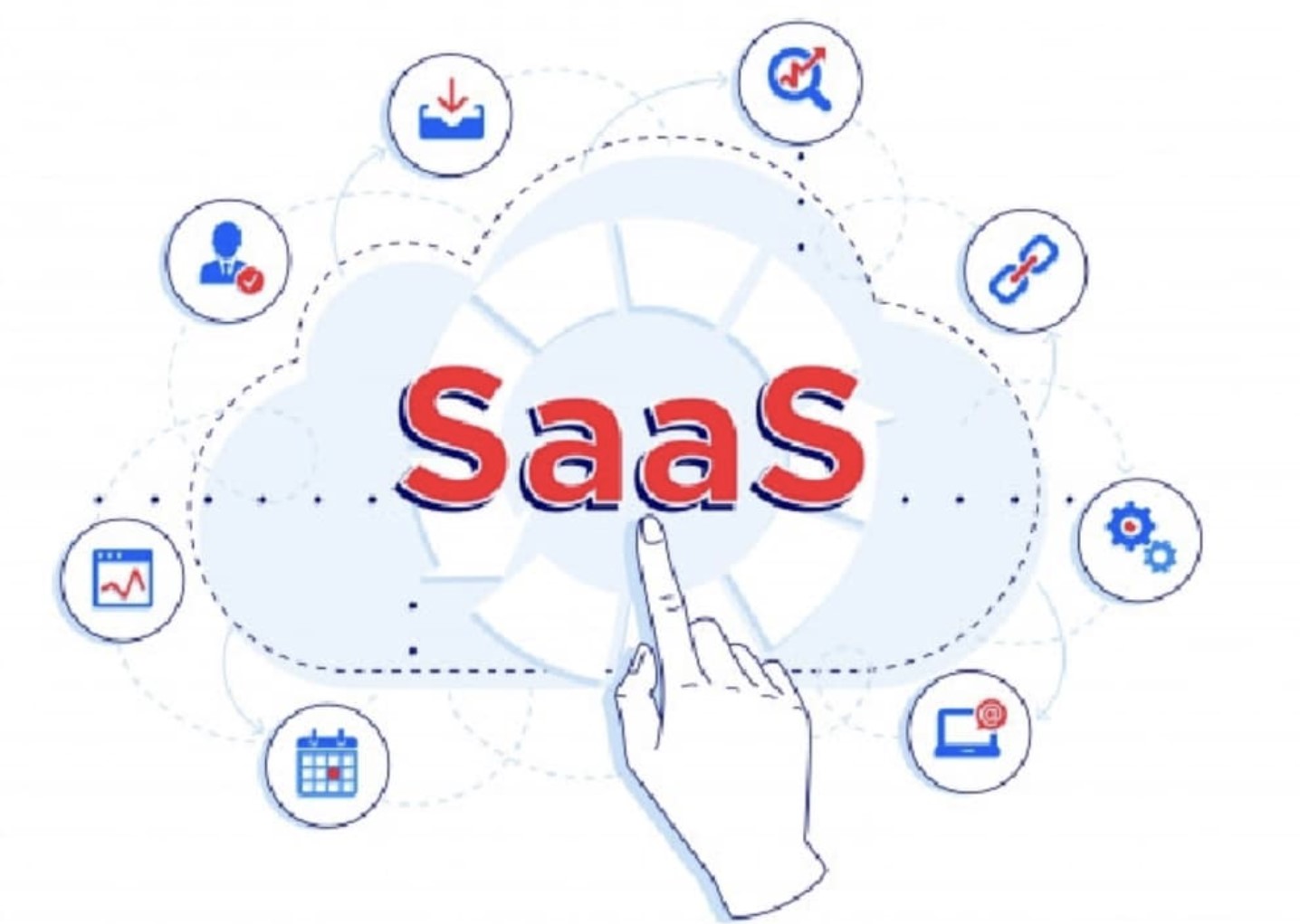In the fast-paced world of modern business, efficiency and organization are key to success. This is where Enterprise Resource Planning (ERP) systems like NetSuite ERP come into play. NetSuite ERP is a robust solution designed to help companies streamline their operations, enhance productivity, and make data-driven decisions. In this article, we’ll delve into the world of NetSuite ERP, exploring its features, benefits, implementation process, pricing, and much more. 
What Is NetSuite ERP?
NetSuite ERP, short for Enterprise Resource Planning, is a cloud-based software platform that provides comprehensive business management and financial solutions to organizations of all sizes. Developed by Oracle, NetSuite ERP is designed to help companies streamline their operations, enhance productivity, and gain better visibility into their financial and operational data.
- Financial Management: NetSuite helps manage financial processes like accounting, financial planning, and reporting. It enables businesses to handle core accounting functions, track expenses, manage revenue recognition, and create financial statements.
- Order Management: This module allows companies to manage their entire order-to-cash process, from order creation to order fulfillment and billing. It helps optimize order processing and reduce errors.
- Inventory Management: NetSuite ERP provides tools for inventory optimization, demand planning, and supply chain management. This helps companies maintain optimal stock levels and reduce carrying costs.
- Customer Relationship Management (CRM): NetSuite offers CRM functionality to manage customer data, sales, and support processes. It allows businesses to improve customer relationships and streamline sales and marketing efforts.
- E-commerce: NetSuite can be integrated with e-commerce platforms, making it easier for businesses to manage online sales, track customer behavior, and streamline the e-commerce supply chain.
- Analytics and Reporting: The system provides real-time reporting and analytics tools, allowing companies to make data-driven decisions and gain insights into their performance.
- Human Resources: NetSuite includes human resources management features, helping with personnel management, payroll, and compliance.
- Project Management: Businesses can use NetSuite to manage projects, allocate resources, track project costs, and monitor project progress.
- Customization: NetSuite is highly customizable, allowing organizations to adapt the system to their specific needs and industry requirements.
- Cloud-Based: Being a cloud-based solution, NetSuite ERP offers the advantage of accessibility from anywhere with an internet connection. It eliminates the need for on-premises hardware and reduces IT maintenance efforts.
NetSuite ERP is particularly popular among mid-sized and rapidly growing companies that need an integrated platform to manage various aspects of their business. Its scalability, flexibility, and real-time data access make it a valuable tool for improving efficiency, decision-making, and overall business performance.
Key Features of NetSuite ERP
NetSuite ERP, or Enterprise Resource Planning, is a cloud-based software solution that offers a wide range of features to help businesses manage various aspects of their operations. Here are some key features of NetSuite ERP:
Financial Management:
- General ledger and accounting.
- Accounts payable and receivable.
- Budgeting and forecasting.
- Fixed asset management.
Order Management:
- Order-to-cash process management.
- Sales and purchase order processing.
- Inventory and warehouse management.
Customer Relationship Management (CRM):
- Sales force automation.
- Marketing automation.
- Customer support and service management.
Inventory and Supply Chain Management:
- Demand planning.
- Procurement and supplier management.
- Multi-location inventory management.
E-commerce:
- Integrated e-commerce platform.
- Online store management.
- Customer self-service portals.
Human Capital Management (HCM):
- Payroll processing.
- Time and attendance tracking.
- Employee self-service.
Business Intelligence and Reporting:
- Real-time analytics and reporting.
- Key performance indicators (KPI) tracking.
- Customizable dashboards.
Project Management:
- Project accounting and billing.
- Resource management.
- Project planning and tracking.
Multi-subsidiary and Multi-Currency Support:
- Ideal for global businesses with multiple subsidiaries or international operations.
- Manages transactions and financials in multiple currencies.
Compliance and Governance:
- Helps businesses meet regulatory compliance requirements.
- Audit trail and controls.
Customization and Integration:
- Highly customizable to adapt to specific business needs.
- Supports third-party integrations with other software and services.
Scalability:
- Scales with the growth of the business.
- Suitable for small and mid-sized businesses to large enterprises.
Mobile Access:
- Access to data and functionality from mobile devices.
- Stay connected on the go.
Security:
- Robust data security and user access controls.
- Data encryption and regular security updates.
Cloud-Based:
- No need for on-premises hardware or software.
- Automatic updates and maintenance.
Customer Support and Training:
- Offers training and support services to help users make the most of the platform.
NetSuite ERP provides a comprehensive solution for businesses to streamline their operations, enhance efficiency, and gain insights into their financial and operational performance. It’s a versatile platform that can be tailored to meet the specific needs of various industries and business sizes.
Benefits of Using NetSuite ERP
Using NetSuite ERP can yield several advantages. Businesses can experience improved visibility into their operations, better decision-making with real-time data, enhanced customer satisfaction through efficient order processing, and a significant reduction in manual data entry and errors.
- Streamlined Operations: NetSuite ERP centralizes various business processes, making it easier to manage and coordinate activities like financials, sales, and inventory.
- Improved Efficiency: Automation of routine tasks reduces manual work, minimizing errors and speeding up processes, which can lead to significant time and cost savings.
- Real-Time Visibility: NetSuite provides real-time data and reporting, giving you a clear picture of your business’s performance at any moment, enabling informed decision-making.
- Enhanced Financial Management: It offers comprehensive financial tools for managing accounting, budgeting, and reporting, ensuring financial accuracy and compliance.
- Better Customer Relationship Management (CRM): NetSuite ERP includes CRM features that help businesses maintain strong customer relationships, drive sales, and deliver excellent customer service.
- Inventory Control: Efficiently manage your inventory, reducing overstock or understock situations and ensuring that you have the right products when customers need them.
- E-commerce Integration: Seamlessly connect and manage your online store, making it easier to sell products and services on the web.
- Human Capital Management (HCM): Helps manage your workforce, from payroll to employee self-service, enhancing HR and payroll processes.
- Business Intelligence: Offers powerful reporting and analytics tools that provide valuable insights into your business’s performance, helping you make data-driven decisions.
- Multi-Subsidiary Support: Ideal for global businesses, NetSuite ERP supports multiple subsidiaries and currencies, making it easier to manage international operations.
- Customization and Scalability: NetSuite is highly customizable to adapt to your business’s specific needs and can scale with your growth.
- Mobility: Access your data and tools on the go using mobile devices, allowing for flexibility and remote work.
- Security: NetSuite maintains robust data security measures, ensuring your business-critical information remains safe from breaches and unauthorized access.
- Cloud-Based: As a cloud-based solution, NetSuite eliminates the need for on-premises hardware and software, reducing IT costs and ensuring automatic updates and maintenance.
- Compliance: NetSuite helps businesses adhere to regulatory requirements and industry standards, reducing compliance-related risks.
- Customer Support and Training: NetSuite offers customer support and training services to help users effectively utilize the platform and address any issues or questions.
In summary, NetSuite ERP provides a comprehensive solution that can significantly improve business operations, streamline processes, enhance decision-making, and adapt to the needs of different industries and business sizes. Its cloud-based nature offers flexibility, scalability, and security, making it a valuable asset for modern businesses.
Industries That Can Benefit from NetSuite ERP
NetSuite ERP is versatile and can be applied across various industries, including manufacturing, retail, e-commerce, and service-based companies. Its adaptability and scalability make it an ideal choice for businesses with diverse needs.
- Manufacturing: NetSuite helps manufacturers manage production schedules, inventory, quality control, and supply chain operations. It provides real-time visibility into production processes and helps reduce lead times.
- Wholesale and Distribution: Companies in this sector can optimize order fulfillment, inventory management, and demand forecasting. NetSuite’s inventory control features ensure that the right products are available at the right time.
- Retail: Retailers can use NetSuite to manage multiple sales channels, from brick-and-mortar stores to e-commerce platforms. It offers tools for point-of-sale, inventory tracking, and customer relationship management.
- E-commerce: Online businesses can leverage NetSuite to streamline their operations, from order processing and inventory management to customer support and marketing campaign management.
- Services: Service-based industries, such as consulting firms, can use NetSuite for project management, time tracking, and resource allocation. It enables accurate billing and invoicing.
- Financial Services: NetSuite supports financial institutions by providing tools for financial planning, reporting, and compliance. It helps in managing complex financial operations efficiently.
- Healthcare: Healthcare organizations can use NetSuite for managing patient records, billing, and supply chain management. It ensures compliance with healthcare regulations and enhances patient care.
- Nonprofits: Nonprofit organizations can benefit from NetSuite’s financial management, donor tracking, and grant management features. It helps them allocate resources effectively and maintain transparency.
- Professional Services: Law firms, accounting firms, and other professional service providers can use NetSuite to manage clients, projects, and billing efficiently.
- Technology: Technology companies can streamline their operations, from product development to sales and customer support. NetSuite helps manage complex product lifecycles and global operations.
- Food and Beverage: This industry can use NetSuite for inventory and supply chain management, as well as compliance with food safety regulations. It helps with batch tracking and quality control.
- Construction and Real Estate: NetSuite can manage project accounting, contract management, and budgeting for construction and real estate companies. It improves project cost control and profitability.
- Education: Educational institutions can use NetSuite for student enrollment, financial management, and campus resource planning. It supports budgeting and grant management.
- Transportation and Logistics: Companies in this industry can optimize route planning, fleet management, and inventory control with NetSuite. It enhances visibility into supply chain operations.
- Energy and Utilities: NetSuite can help in managing complex billing processes, regulatory compliance, and asset management for energy and utility companies.
- Hospitality and Tourism: Hotels, restaurants, and travel agencies can use NetSuite for reservations, property management, and customer relationship management.
- Agriculture: NetSuite can assist in managing crop production, inventory, and distribution for agricultural businesses. It aids in farm-to-table supply chain management.
NetSuite’s flexibility and scalability make it a valuable solution for a wide range of industries. It can be customized to meet the specific needs of each organization, making it a popular choice for businesses looking to streamline their operations and improve their overall efficiency.
6. How to Implement NetSuite ERP
Implementing NetSuite ERP involves several steps, including planning, data migration, customization, and training. It’s crucial for businesses to understand the process to make a smooth transition to this powerful tool.
Assessment and Planning:
- Needs Assessment: Start by evaluating your organization’s specific needs and goals for implementing NetSuite ERP. Determine what modules and features are essential for your business.
- Project Team: Assemble a cross-functional implementation team with members from various departments, including finance, IT, operations, and sales. Appoint a project manager to oversee the implementation.
- Budgeting: Establish a budget that covers software licensing, consulting services, hardware, and any other necessary resources.
Data Migration:
- Data Cleanup: Clean and organize your existing data. Remove duplicates, update outdated records, and ensure data consistency.
- Data Mapping: Map your existing data to NetSuite’s data structure. Determine how your data will be migrated into the system.
- Data Migration Tools: NetSuite offers tools and support for data migration. Depending on the complexity, you might need assistance from NetSuite professionals or partners.
Configuration and Customization:
- Module Setup: Configure NetSuite modules to align with your business processes. This includes defining chart of accounts, subsidiaries, and other core settings.
- Customization: Customize NetSuite to meet your specific needs. This may involve creating custom fields, forms, and workflows.
- Integration: Integrate NetSuite with other systems you use, such as CRM software, e-commerce platforms, or third-party applications.
Training and Documentation:
- User Training: Train your employees on how to use NetSuite. NetSuite offers training resources and certification programs, and you can also consider hiring a NetSuite consultant for in-house training.
- Documentation: Create user manuals and documentation to support your team as they use the system. This should include standard operating procedures and best practices.
Testing:
- System Testing: Conduct thorough testing of the system to ensure that it works correctly. Test various scenarios to identify and resolve any issues.
- User Acceptance Testing (UAT): Involve end-users in testing to validate that the system meets their requirements. Address any feedback and issues that arise.
Go-Live:
- Data Migration: Migrate your data into NetSuite. Ensure that data is accurately and securely transferred.
- Transition Plan: Develop a plan for the actual go-live date. This should include a timeline, roles and responsibilities, and a communication strategy.
Post-Implementation Support:
- Monitoring: Continuously monitor the system’s performance and user feedback. Address any issues promptly.
- Training and Ongoing Education: Continue to provide training and support to users as they become more familiar with the system.
- Optimization: Periodically review and optimize your NetSuite setup to align with changing business needs.
Compliance and Security:
- Ensure that your NetSuite setup complies with relevant industry regulations and security best practices.
Regular Updates:
- Stay up to date with NetSuite updates and patches to take advantage of new features and maintain system security.
Evaluate and Improve:
- Periodically assess how NetSuite is helping your organization meet its goals and consider further enhancements or adjustments as needed.
It’s important to note that implementing NetSuite ERP can be a substantial undertaking, and the assistance of NetSuite consultants or partners may be valuable, especially for larger or more complex projects. Their expertise can help streamline the process and ensure a successful implementation.


